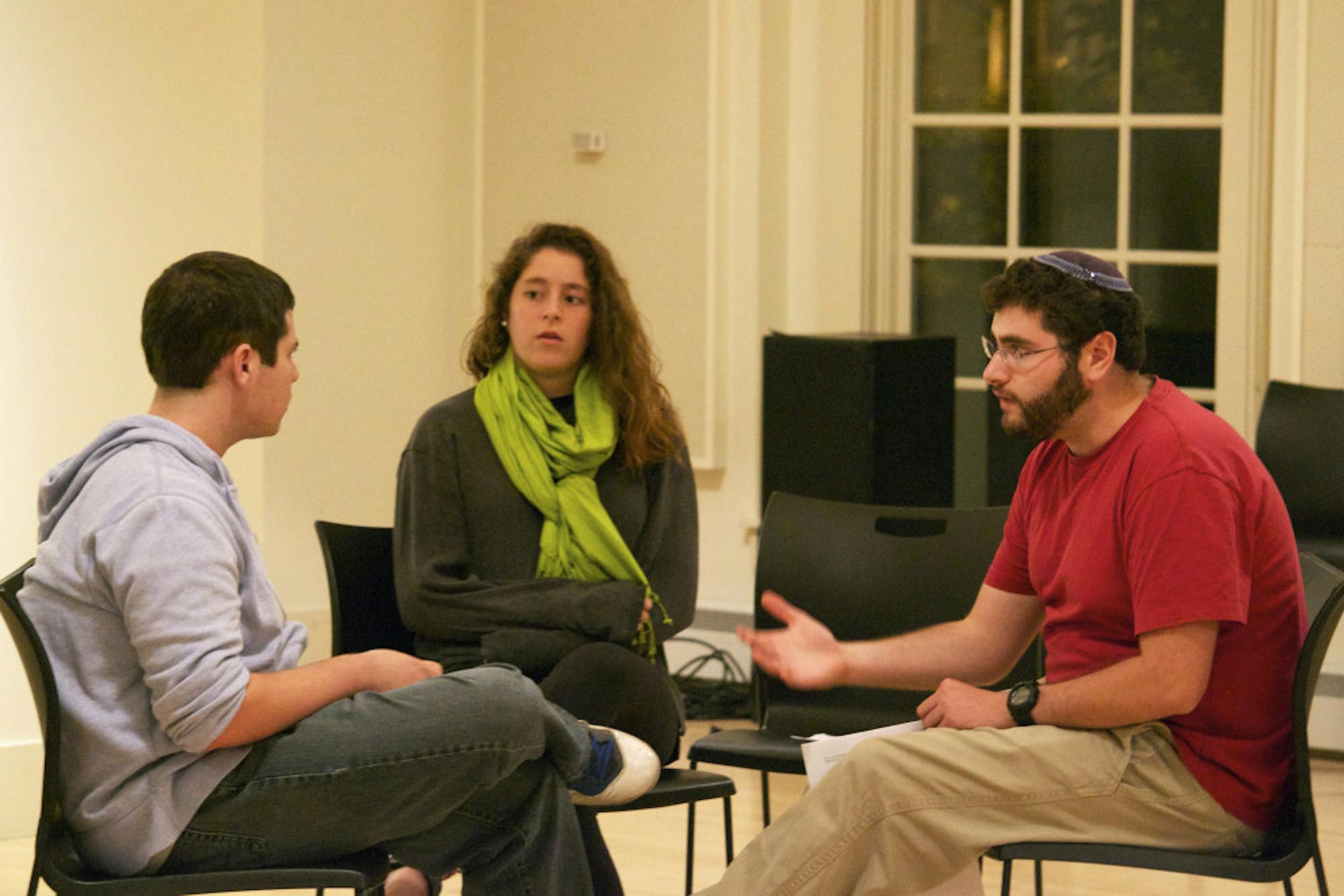In light of this summer's outburst of violence in Israel and the Gaza strip, a space for students to safely debrief and understand the Israeli-Palestinian conflict is more crucial than ever. The University Chaplaincy has begun to provide just that in their eight-week series held at the Interfaith Center entitled "Restoring Dignity in the Israel-Palestine Conversation."
These discussions will serve as a safe, third space where students can constructively express their opinions and actively listen to others' perspectives, without being influenced by any one take on the conflict. The introductory session was solely focused on fostering respectful communication skills and building group trust. Hopefully, these skills can be used outside this space for communication within and among political and cultural groups dealing with Israel and Palestine.
The two facilitators for the series have very different but highly qualified backgrounds, which can allow them to act as a bridge in the conversation. Both have promoted peaceful discourse regarding the conflict in the past, and should bring their real world experience to Tufts students in order to add degrees of nuance to the discussion that are often left out of more formal education.
The Tufts community should look to the Chaplaincy as a model for discussing the conflict. This dialogue series includes a diverse set of voices and political stances, from those who are totally uninformed on the issue, to those who are grappling with it seriously from a variety of angles. It promotes learning and respectful engagement. As Tufts students, many of us care passionately about this highly sensitive topic, which can lead to a polarized campus climate.
In order to critically engage with the conflict to the fullest degree possible, students should consider attending events hosted by Hillel, Friends of Israel, Students for Justice in Palestine (SJP) and J Street U, each of which offers a different lens on the issue. One opportunity for engagement is the upcoming national SJP conference held at Tufts, titled “Beyond Solidarity: Resisting Racism and Colonialism From the US. To Palestine." Another opportunity is this weekend's Open Hillel conference at Harvard, which will host speakers from a wide range of views in an attempt to bring a more vigorous debate on the conflict to the Jewish community.
Despite the bleak prospects for peace in the region, Tufts students should, in the same spirit as the Chaplaincy, come together to work for the end of injustice and cyclical violence between Israelis and Palestinians.
Chaplaincy opens new space for dialogue on Israel-Palestine conflict

At meetings of the "Restoring Dignity in the Israel-Palestine Conversation," participants break up into small groups to share their opinions and practice communication skills.





